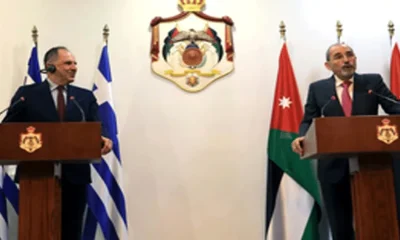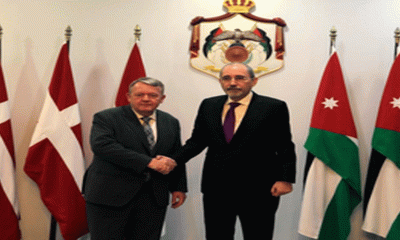International News
Jordan, Arab League voice opposition to displacement of Palestinians
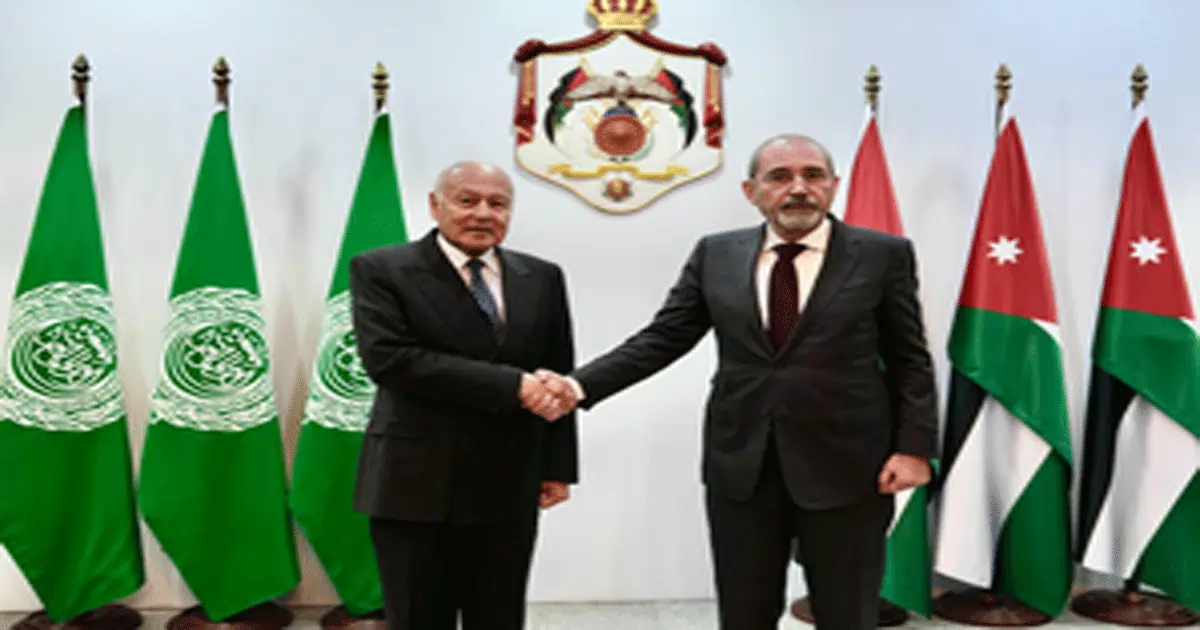
Amman, Feb 24: Jordan and the Arab League reaffirmed their firm stance against the displacement of Palestinians from their land or within it.
During a meeting on Sunday in Amman between Jordan’s Minister of Foreign Affairs Ayman Safadi and Arab League Secretary-General Ahmed Aboul Gheit, the two sides stressed that Gaza can be rebuilt without displacing its residents, according to a statement by the Jordanian Foreign Ministry.
They also highlighted Egypt’s role in developing a plan to achieve this with Arab support.
Safadi and Aboul Gheit also discussed ways to enhance joint Arab action, reviewed the latest regional developments, and talked about preparations for the emergency Arab summit scheduled for early next month.
They emphasised the importance of strengthening joint Arab efforts, deepening cooperation and coordination to address shared challenges, and serving Arab interests and causes.
The two officials stressed the need to consolidate the ceasefire in Gaza and ensure the adequate and sustainable delivery of humanitarian aid to the Strip.
Safadi and Aboul Gheit underscored the necessity of preventing further deterioration in the occupied West Bank and called for an end to Israel’s illegal measures that risk escalating tensions.
They reiterated that the establishment of an independent, sovereign Palestinian state along the 1967 borders, with East Jerusalem as its capital, based on the two-state solution, is the only path to achieving security, stability, and a just and comprehensive peace in the region.
They also discussed the latest developments in Syria, affirming the need to support the Syrian people in rebuilding their country on a foundation that ensures unity, security, and stability, eliminates terrorism, and safeguards the rights of all its components.
International News
I am good at solving wars: Trump says he will resolve Afghanistan-Pakistan conflict
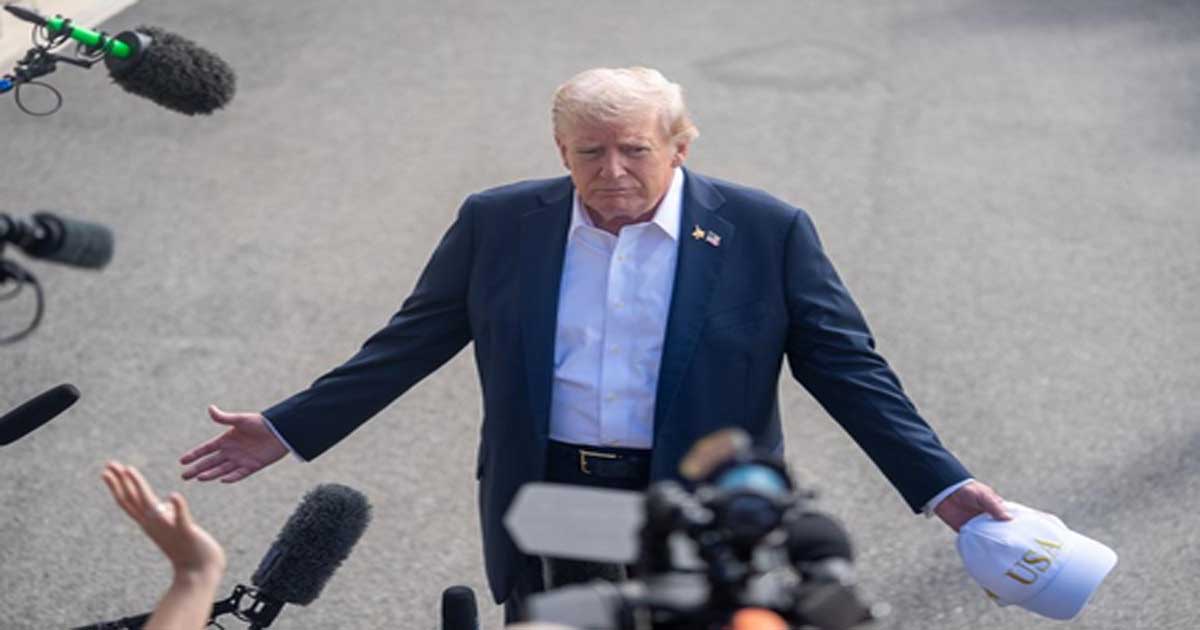
Washington, Oct 13: US President Donald Trump has expressed his intention to mediate the border conflict between Pakistan and Afghanistan, claiming that he can bring an end to the dispute, referring to the other wars that he has “resolved”.
He made these statements as he was heading to Egypt for a summit on the Gaza peace process, which will officially mark the end of the two-year-long conflict in the Middle East, claiming it to be the eighth war he has resolved.
Speaking to reporters, Trump said, “This will be my eighth war that I have solved, and I hear there is a war now going on between Pakistan and Afghanistan.”
“I said, I’ll have to wait till I get back. I am doing another one. Because I am good at solving wars,” he said, adding that conflicts that lasted for decades were solved ‘relatively quickly’ during his tenure as the US President.
“Think about India, Pakistan. Think about some of the wars that were going on for years… We had one going for 31, one going for 32, one going for 37 years, with millions of people being killed in every country, and I got every one of those done, for the most part, within a day. It’s pretty good,” Trump said.
Speaking about the Nobel Peace Prize, which was accorded to Venezuelan opposition leader Maria Corina Machado, Trump said, “I did not do this for the Nobel. I did this for saving lives.”
“The person who got the Nobel Prize called me today and said, ‘I am accepting this in honour of you, because you really deserved it’. I’ve been helping her along the way,” he added.
Trump outlined several international disputes that he asserted were resolved during his leadership, including those between Armenia and Azerbaijan, Kosovo and Serbia, Israel and Iran, Egypt and Ethiopia, and Rwanda and the Congo.
International News
Netanyahu says Israel’s military campaign ‘not over’ despite Gaza ceasefire
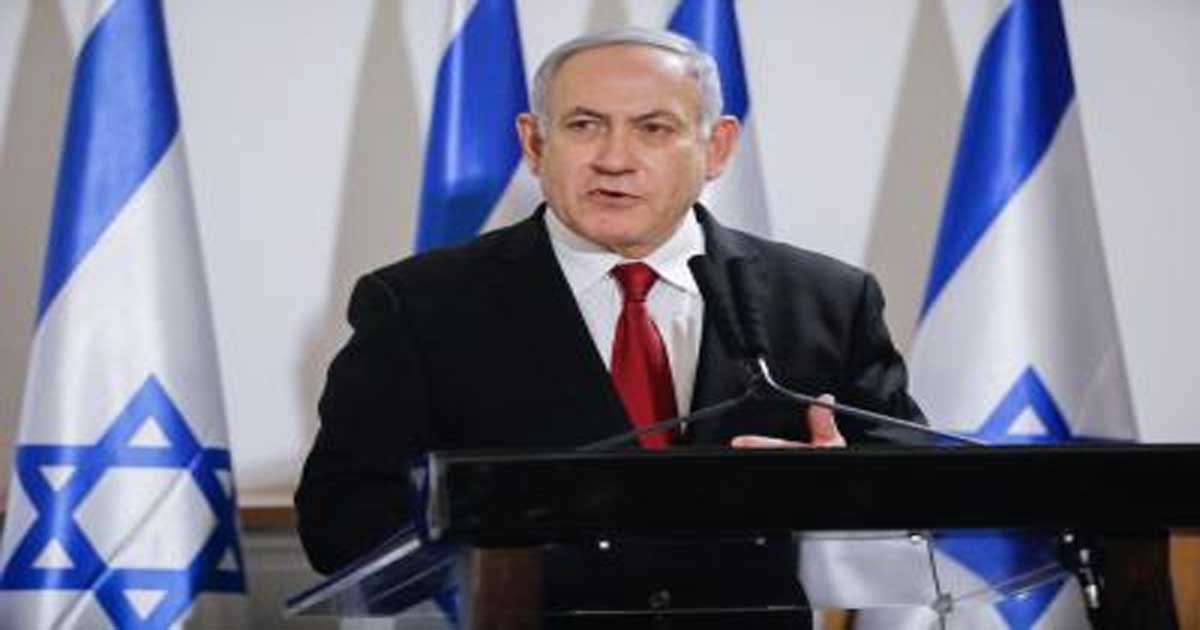
Jerusalem, Oct 13: Israeli Prime Minister Benjamin Netanyahu said that the country’s military campaign “is not over,” on the eve of the planned release of all living Israeli hostages and hundreds of Palestinian detainees under the next stage of the newly implemented Gaza ceasefire with Hamas.
In a televised address, Netanyahu hailed the planned release of the 20 remaining living hostages as a “historic event,” Xinhua news agency reported.
“Wherever we fought, we won,” he said. “But the campaign is not over yet,” he added, without giving further details.
He said Israel still faces “very big security challenges” ahead. “Some of our enemies are trying to regroup,” he warned, vowing to ensure Israel’s security.
Earlier in the day, Israel’s military chief Eyal Zamir said that the country had achieved a “victory over Hamas.” In a broadcast statement, Zamir said the victory came through a combination of sustained military pressure and diplomatic efforts.
Zamir added that Israel remains “in the midst of a multi-front war.” He said the military “will continue to act in order to shape a security reality that ensures the Gaza Strip no longer poses a threat to the State of Israel and its civilians. Through our operations, we are reshaping the Middle East and our security strategy for the years ahead.”
The Israel-Hamas ceasefire went into effect on Friday, following more than two years of Israeli bombardments that devastated the Gaza Strip and caused famine.
International News
Pakistan fears losing more than diplomatic ground with Kabul turning to India
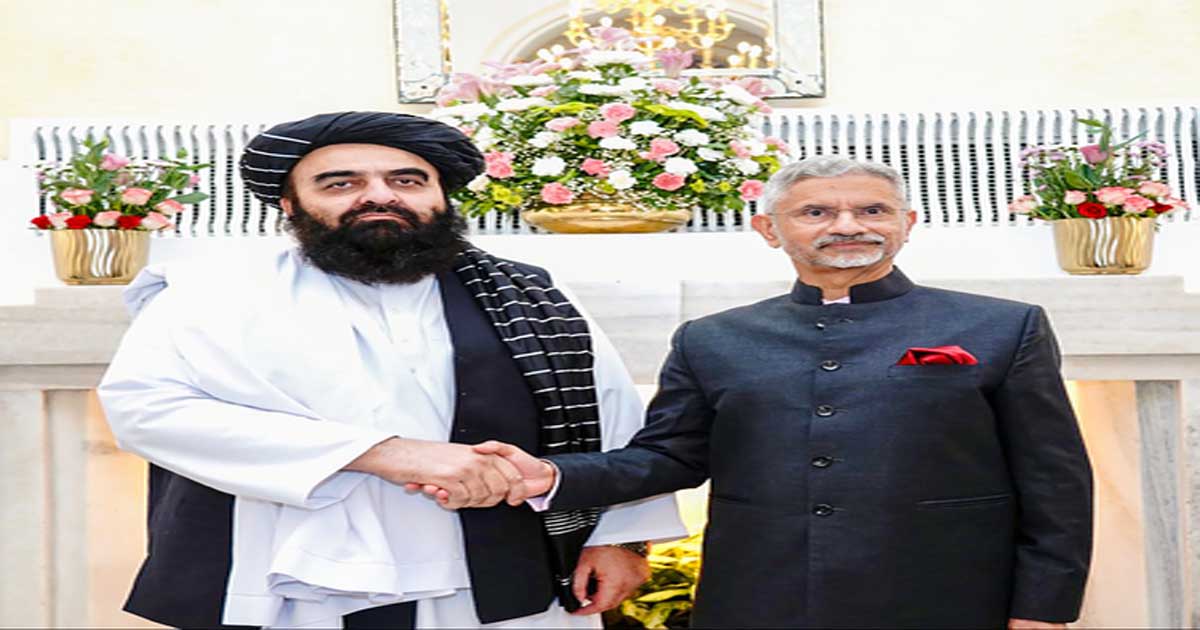
New Delhi, Oct 10: Pakistan could never imagine that a group it once raised and used to spread terror in neighbouring countries would one day run a government and realise that diplomacy does not flow out of the barrel of a gun.
When on the receiving end, Pakistan’s Defence Minister Khawaja Asif stated that Islamabad has “run out” of patience over the use of Afghan soil by “terrorists targeting Pakistan”.
He has also made a bizarre statement, claiming that Afghans have always stood beside India “yesterday, today, and tomorrow”.
If indeed his country had offered support to Afghan refugees, it was to raise a militia, not out of compassion. And all these rhetorics come when Afghanistan’s Foreign Minister Amir Khan Muttaqi is visiting India.
Pakistan has itself soured its relationship with the Taliban, attacking Afghanistan’s border areas, even resorting to aerial bombing, and driving back thousands of refugees from its land to an uncertain future.
Kabul has always refused to recognise the Durand Line – then hurriedly drawn by British occupiers – as a legitimate border.
The porous areas have witnessed intermittent skirmishes, affecting trade and transit. After the withdrawal of US-led troops, Islamabad expected the Taliban to remain eternally grateful and jump to its bidding, but the regime’s assertiveness has disrupted that. Kabul’s diplomatic overtures towards New Delhi have unsettled Pakistan.
While India does not officially recognise the Taliban regime, its pragmatic engagement signals a shift in Kabul’s foreign policy orientation. For Pakistan, this represents a strategic loss and a potential threat.
India’s growing ties with Kabul, combined with its strategic partnership with Iran, amplify these fears.
Possible increase in India’s diplomatic and trade relation with nations in Pakistan’s immediate neighbourhood blow winds of caution for Islamabad.
Meanwhile, Pakistan’s economic ties with Afghanistan have also suffered, with border closures, refugee deportations, and diplomatic tensions having disrupted transit routes.
India’s investment in alternative corridors like the International North–South Transport Corridor (INSTC) and Chabahar bypasses Pakistan entirely.
But following the re-imposition of sanctions against Iran and the Chabahar Port in particular, foreign companies became reluctant to participate in the port’s expansion.
India took over operations in 2018, and used it for trade with Iran and other countries, and also send relief materials to Kabul. Islamabad is eyeing Muttaqi’s India visit warily, fearing diplomatic isolation, where, with India engaging Afghanistan, Iran, and other Central Asian nations, Pakistan risks being left out of regional dialogues.
Increased Indian presence could lead to constricting its operations in intelligence gathering, surveillance, and influence over the region. Thus, Afghanistan’s tilt towards India adds pressure on Pakistan’s western flank.
The Taliban’s refusal to act as Islamabad’s proxy and India’s growing goodwill among Afghans have reshaped the strategic landscape. Pakistan’s view of India’s advantage in Afghanistan is shaped by a sense of strategic reversal.
What was once a zone of influence has become a source of insecurity.
India’s soft-power diplomacy, infrastructure investments, and pragmatic engagement with the Taliban have allowed it to gain ground practically without boots on the ground.
Islamabad now faces two main challenges – managing deteriorating ties with the Taliban and countering India’s expanding influence. But given utterances like those by Khawaja Asif, both seem distant for Pakistan.
As regional dynamics evolve, Afghanistan will remain a critical point in South Asia’s geopolitical chessboard – one where Pakistan’s traditional playbook may no longer suffice.
-

 Crime3 years ago
Crime3 years agoClass 10 student jumps to death in Jaipur
-

 Maharashtra1 year ago
Maharashtra1 year agoMumbai Local Train Update: Central Railway’s New Timetable Comes Into Effect; Check Full List Of Revised Timings & Stations
-

 Maharashtra12 months ago
Maharashtra12 months agoMumbai To Go Toll-Free Tonight! Maharashtra Govt Announces Complete Toll Waiver For Light Motor Vehicles At All 5 Entry Points Of City
-

 Maharashtra1 year ago
Maharashtra1 year agoFalse photo of Imtiaz Jaleel’s rally, exposing the fooling conspiracy
-

 National News1 year ago
National News1 year agoMinistry of Railways rolls out Special Drive 4.0 with focus on digitisation, cleanliness, inclusiveness and grievance redressal
-

 Maharashtra11 months ago
Maharashtra11 months agoMaharashtra Elections 2024: Mumbai Metro & BEST Services Extended Till Midnight On Voting Day
-

 National News1 year ago
National News1 year agoJ&K: 4 Jawans Killed, 28 Injured After Bus Carrying BSF Personnel For Poll Duty Falls Into Gorge In Budgam; Terrifying Visuals Surface
-

 Crime12 months ago
Crime12 months agoBaba Siddique Murder: Mumbai Police Unable To Get Lawrence Bishnoi Custody Due To Home Ministry Order, Says Report



